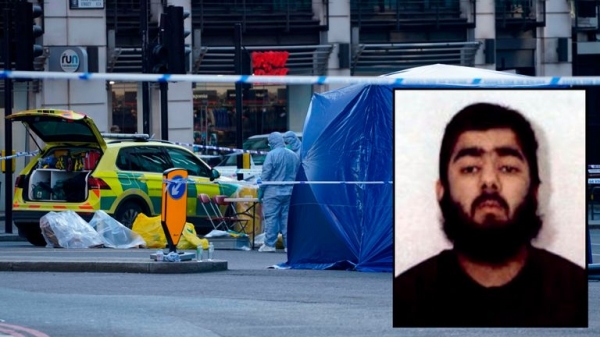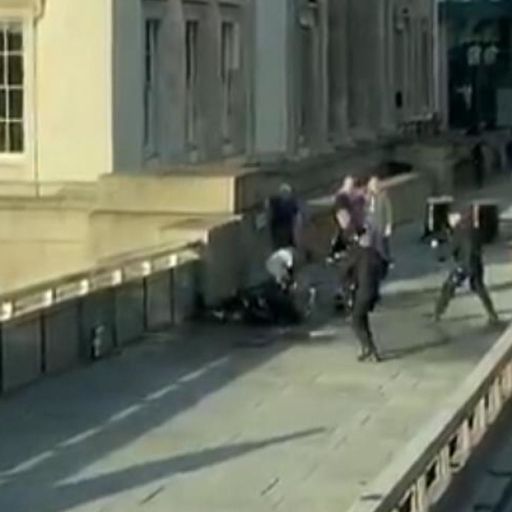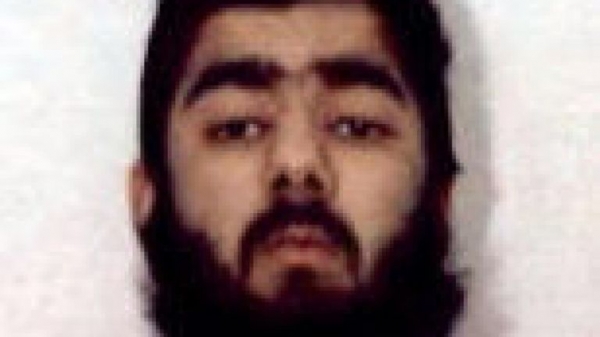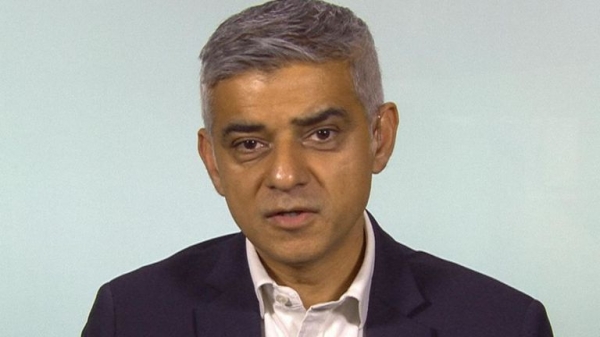London Bridge terror attack: Trust will determine how atrocity influences election
Boris Johnson has wasted no time pressing the case for an end to the automatic release of seriously violent criminals.

How and why was convicted terrorist Usman Khan automatically released from prison?
For those affected by Friday’s terror attack, that’s a brutally real life question.
But it may have a deeply political answer.

How the London Bridge terror attack began at a prisoner rehabilitation event
Usman Khan was given a sentence known as “imprisonment for public protection” (IPP) in February 2012 for his part in a terror plot, meaning he could not be released without the approval of the Parole Board.
First introduced by New Labour, IPPs had become controversial amid concerns they were being misused and keeping lower level offenders locked up indefinitely.
In September 2012, the European Court of Human Rights ruled they were “arbitrary and unlawful”.
Three months later, IPPs were abolished by the Conservative-led coalition government and replaced with new beefed up fixed-term sentences.
These also required The Parole Board to look at the cases of serious offenders before they were eligible for release on licence.
Against that backdrop in early 2013, Usman Khan successfully appealed his IPP sentence and had it revised down to 16 years behind bars with five on licence.
Handing down that judgement, Lord Justice Leveson said there was “an argument for concluding” that the decision to release offenders like Khan was “better left to the parole board”.

But the type of sentence and the fact he was convicted before new tougher laws on parole were brought in, meant he fell back onto the previous legal regime.
This granted Khan automatic release half way through the sentence with no need to go through The Parole Board.
Essentially, Khan landed between the gaps of two systems and ended up with a more lenient outcome.
Who is to blame is rapidly becoming part of the political war of words amid concerns that other convicted terrorists could fall down the cracks and be automatically released.
Former Labour Chair of the Home Affairs Select Committee Yvette Cooper tweeted “what assessment did the Government make of the number of serious criminals or terrorists originally given IPPs who could be released early without any Parole Board assessment?”
Labour Mayor of London Sadiq Khan also told Sky News he thought it was a mistake for the coalition to abolish IPPs saying it is “really important for judges to have all the tools at their disposal”.

The Tories are saying the European Court of Human Rights ruling meant they had to abolish IPPs.
They’re also pointing out that the more lenient regime Khan fell back onto was brought in under Labour.
As the election campaign ramps up again, Boris Johnson has wasted no time pressing the case for an end to the automatic release of seriously violent criminals.
In reality, the December 2012 reforms go some way to doing this already.
But the prime minister wants to go further, and clearly sees political value in talking tough on terrorism.
That may play well with his core Tory vote, but others will be queasier, especially after the father of one of the victims asked for his son’s death not to be used to push more draconian sentences.
For Jeremy Corbyn, how to deal with terrorists has the potential to be a politically tricky topic.
Speaking on Saturday, he said there were questions about why the parole board were not involved in Khan’s release and why there wasn’t tougher supervision of him outside of prison.
But the Labour leader has been a critic of many pieces terrorism legislation, concerned about its impact on civil liberties and the potential for it to spread division and alienation.
The Tories will try to exploit this and paint Mr Corbyn as soft on security.
But Labour will point to resource issues: cuts to police numbers, the botched part-privatisation of probation and violence in prisons.
After the Manchester and Borough Market terror attacks in 2017, Theresa May was forced to fight off accusations that Tory austerity had made the streets less safe.
Boris Johnson will no doubt come under attack in a similar way in the coming days.

Ultimately, trust is the political commodity that will determine how this latest atrocity influences the election result.
Who do you trust to keep dangerous criminals locked up?
Who do you trust to properly resource the public services we all rely on to keep us safe?
Questions that yesterday’s attack has brought into sharp focus in the most tragic of ways.
Previous article
Usman Khan in 2010: ‘I can never trust’ police
Next article
Man fends off terrorist with whale tusk